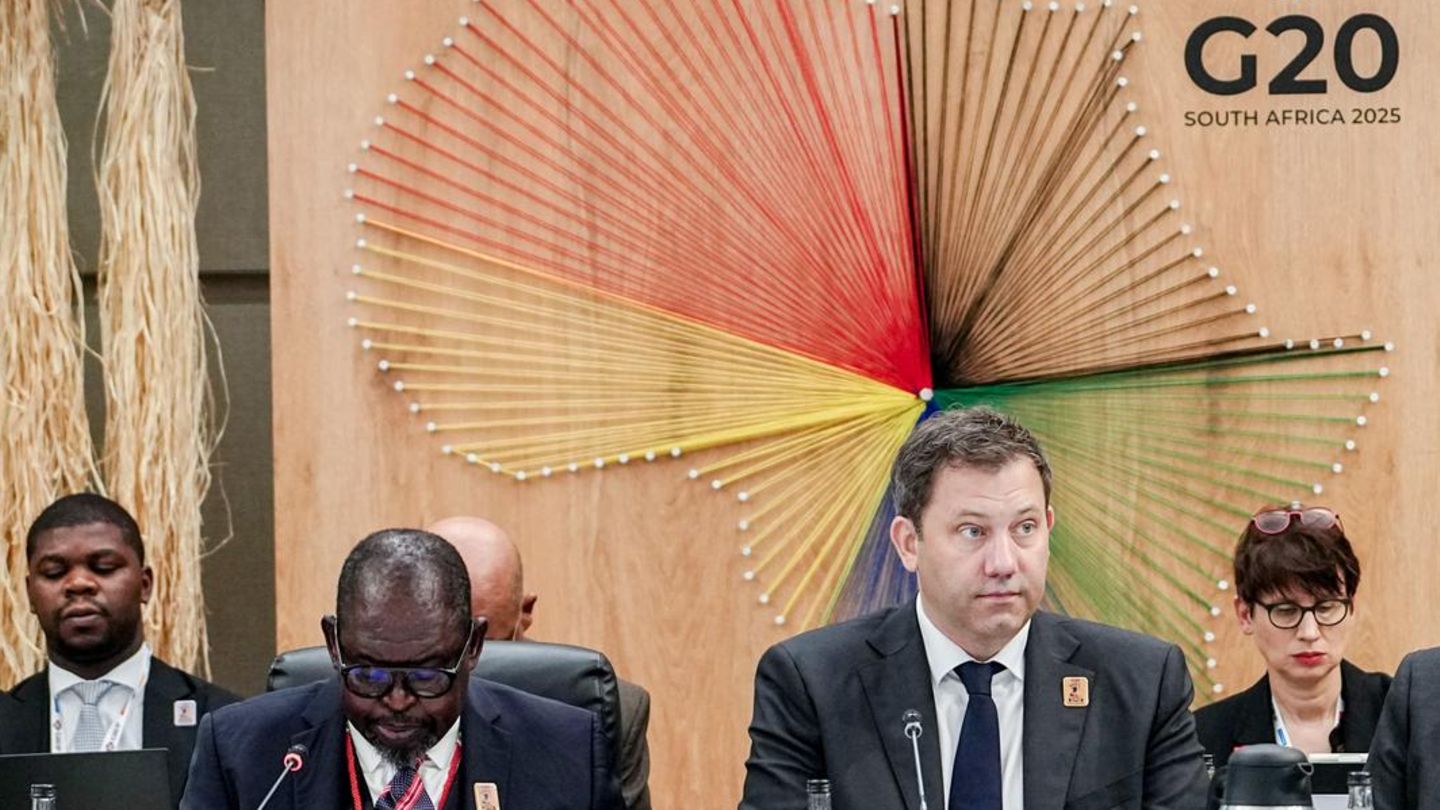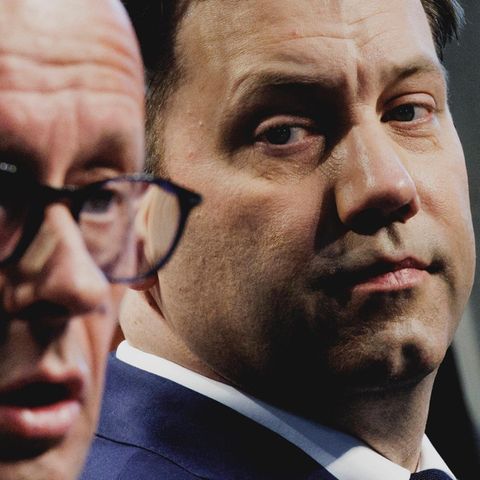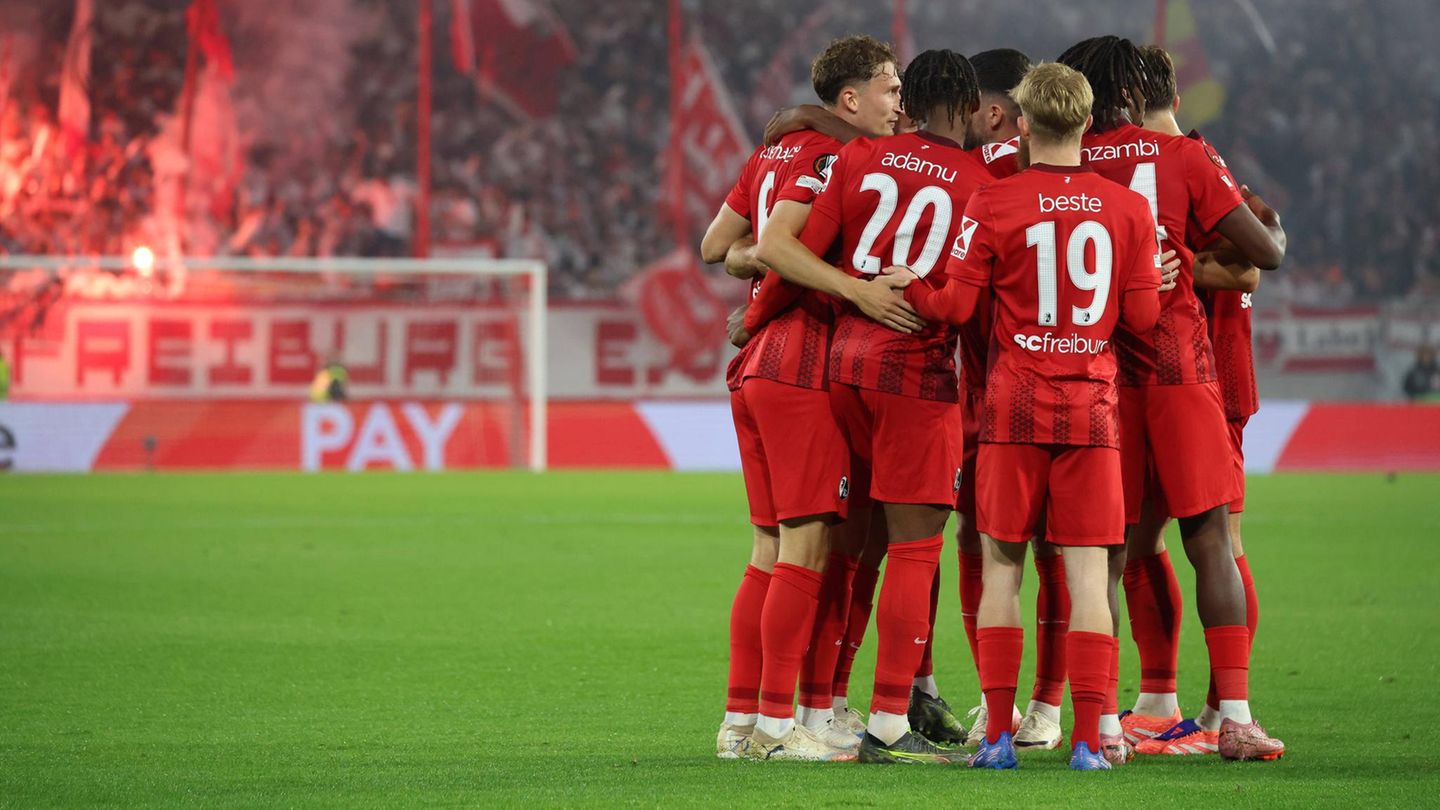G20 summit in Durban
Klingbeil demands Africa turn for Germany
Copy the current link
Add to the memorial list
At the G20 summit in South Africa, Vice Chancellor Klingbeil speaks for an Africa turn. Germany neglected the continent for too long – he announces the first steps.
The finance minister meeting of the 20 leading industrialized and emerging countries began overshadowed by the trade conflict. Host South Africa called for stronger international cooperation on Thursday to help poorer countries. Federal Minister of Finance Lars Klingbeil wants to deepen the cooperation of Europe with Africa. He promised ten million euros from the World Bank, which helps developing countries around the world. Because numerous ministers in Durban were missing, there were no major decisions. Klingbeil insisted on an early agreement in the smoldering trade conflict, which could potentially brake the global economy.
At the opening of the meeting, South Africa’s finance minister Enoch Godongwana said that the G20 group had to act. Many developing countries suffered from high debts and limited financial scope. “This limits her opportunities to invest in your people and your future.” SPD boss Klingbeil said with a view to Africa, in view of the trade conflicts, partnerships would have to be deepened and new ones built up. Germany had neglected its relationships with the southern hemisphere for too long, while Russia and China had increased its influence. “We have to change that.”
Under German G20 Presidency, the “Compact with Africa” initiative was launched in 2017 to promote private investments in Africa. With the support of the initiative, Germany will make a first contribution of ten million euros for the World Bank’s trust fund. “We are convinced that this is a worthwhile investment and we would be happy if other G20 members would agree with us,” said Klingbeil.
The finance minister and central bank chiefs will advise on the Indian Ocean until Friday. However, the meeting is overshadowed by high -ranking cancellations, such as from the USA, Russia, India, France and Italy. Because there have been strong cracks in the group in recent years, this makes joint initiatives to solve international problems even more improbable. Klingbeil said he still sees a future for the G20. Such conversation is needed. The United States will take over the rotating G20 chair next year. In the U.S. government area, it was said that the conversation groups should be reduced and the schedule should be tightened.
Klingbeil: Need trade deal in July
According to Klingbeil, the EU’s trade conflict with the USA must still be dissolved in July. “That has been going on for a long time.” From August, US President Donald Trump threatened the EU with flat-rate tariffs of 30 percent, which would particularly hit the export-dependent German economy. Klingbeil said both sides should be able to live with the compromise to be achieved. The hand of the Europeans remains stretched out, a solution on the negotiating channel is the goal. “If there is no fair deal, we can also act as Europeans.” The EU Commission has recently prepared some potential countermeasures. Trump said a trade agreement with the EU was possible.
According to the Bundesbank boss Joachim Nagel, an escalation in the customs dispute can result in a recession in Germany. It can currently be assumed that there is stagnation in this year, he told Reuters in Durban. With a customs hammer in August, a slight recession 2025 would no longer be possible. For 2026, the Bundesbank currently estimates a plus for gross domestic product of 0.7 percent. This growth would “possibly be completely eaten up by the tariffs that are now in the room”.
Nagel added that the EU should not rule out anything in its negotiating strategy. “In the end, it is about making it clear to Europe that you can make a very self -confident policy here.” More than 70 countries in the world showed Europe as its most important trading partner. “And I think the US government has to understand that too.”
N-TV · Reuters
mth
Source: Stern
I have been working in the news industry for over 6 years, first as a reporter and now as an editor. I have covered politics extensively, and my work has appeared in major newspapers and online news outlets around the world. In addition to my writing, I also contribute regularly to 24 Hours World.





